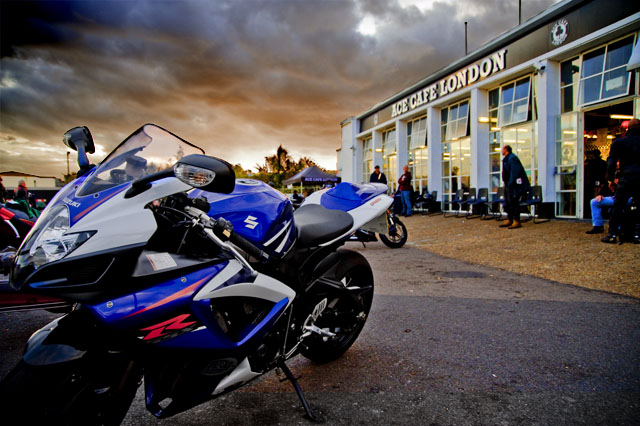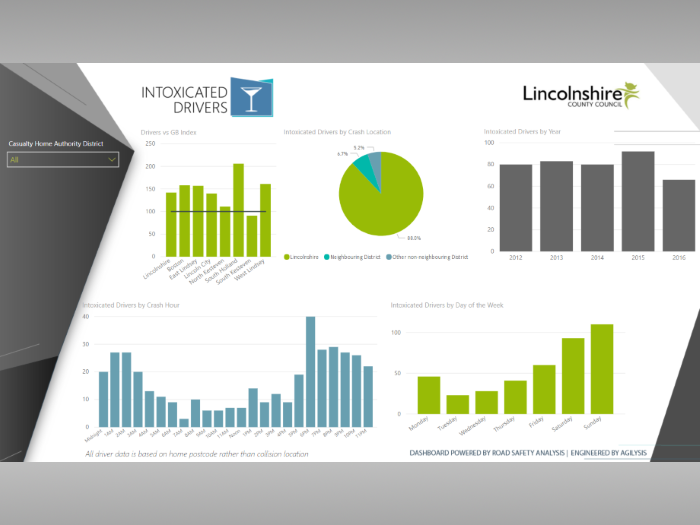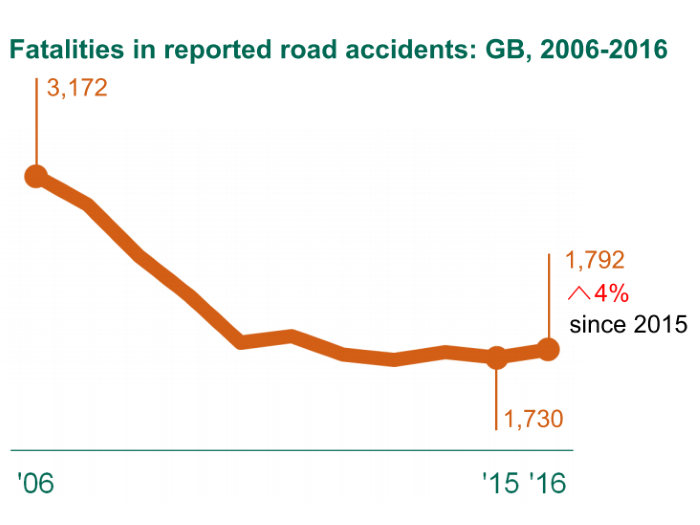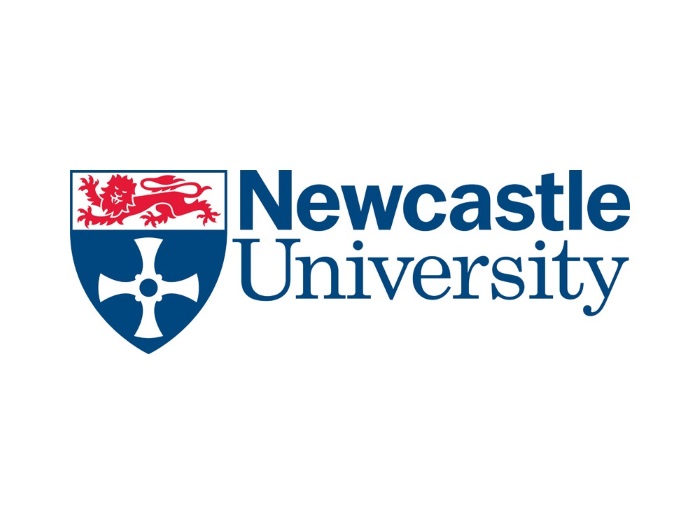
2015 Road Safety Statistics – Evidencing the new ‘epoch’
June 30, 2016
Project EDWARD – A day without road deaths
September 21, 2016Motorcyclist Casualties - What's Going On?
In the recently published casualty statistics the DfT noted 'Motorcycling fatalities were the only significant road user group and severity to increase during 2015. In total, 365 motorcyclists were killed during the year, up 8 per cent from 339 in 2014.'
Here we look at some of the features of Motorcyclist collisions and highlight how heterogeneous the group is.
After spending many years analysing those motorcyclicts involved in injury collision the most important thing to note is that motorcyclists are not homogenous and one size doesn't fit all. A popular sterotype is the 'norn again biker' who used their sports bike at weekends for a blast on country roads. It may surprise the reader to discover that the casualty figures paint a very different picture.
Motorcycle casualties aged between 25 and 64, injured at weekends on bikes over 125cc only make up 12.5% of all motorcyclist casualties. The figure for riders killed rises to 29% however (Source MAST Online, Casualties 2005 - 2014)
We therefore need to carefully profile riders and adapt different solutions to target different types. In recent years, we have undertaken at least 6 different Insight Studies on motorcyclists, for a diverse set of clients. These have included 4 London Boroughs, one county council and a ceremonial county of 6 unitary authorities. Whilst some of these studies have revealed similarities, the over-riding conclusion is that motorcyclists differ
1Type of bike
There are different peaks in user age according to engine size
o Up to 125cc (16, 20-29)
o Over 125cc (30-34)
o Over 500cc (40-49)
2Journey purpose
These differ and analysed alongside time of day and day of week, some assumptions can be made about reason for travelling:
o Commuting for work
o Commuting for college/school
o Riding for work purposes – couriers
o Riding for work purpose – leisure riders
o Pleasure – weekends in rural areas
3Socio-demographics
From deprived 16-year-old moped riders (who may struggle to keep their bike roadworthy or avoid appropriate protective gear), through to affluent professionals who also own several cars alongside their bike. In between are young city centre graduates who are embarking on their careers.
4Mobility
Unsurprisingly, motorcyclists do not necessarily crash in their own area – joint working or national approaches are necessary to ensure that all motorcyclists are targeted effectively.
5Similarities
There are some similarities, though:
Only between 13 and 25% of riders on up to 125cc machines were involved in single vehicle collisions, with 28% of those on over 500cc motorcycles in crashes with no other vehicles.
Between 30 and 55% of the riders were near to a T-junction at the time of their crash but between 48 and 62% were travelling straight ahead at the time.
Visibility, manoeuvres and the observations of other road users could be at play here.




